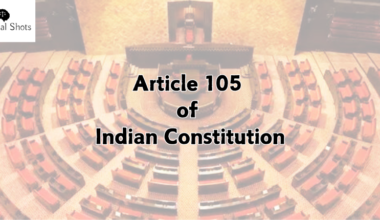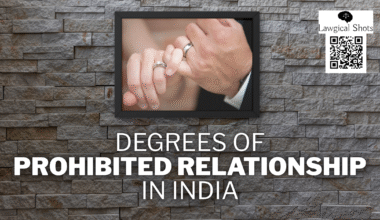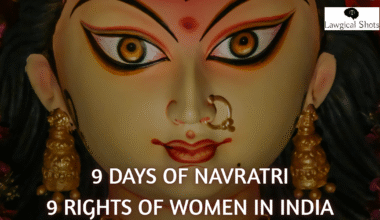When you become a wife, you can take away everything that your husband owns – his peace of mind, his money, his social life, etc. Is it all the same when you are not the wife but the live-in partner? (That can be taken as a joke) On a serious note, marriage is a well recognized and a must social institution for two unrelated persons of opposite sex to stay together and cohabit. The rights of females in a marriage are well settled by the laws. So the question arises – Are there any rights of female in live-in relationship in India?
There is no live-in relationship law which gives a legal status to live-in relationships. In a first, the newly codified Uttarakhand Uniform Civil Code puts in place some live-in relationship rules. It requires live-in couples to get their relationship registered. What happens further is yet to be unveiled. The blog below discusses one side of the coin titled rights of live-in partner in India, particularly eyeing at the females.
Decoding Rights of Female in Live-in Relationship in India
In the absence of any specific law dealing with or governing such relationships or laying the live-in relationship law, the Courts have stepped in as the saviours. The High Courts as well as the Supreme Court of India have stepped in to extend the interpretation of live-in relationship rules. The Courts tend to compare rights of females in live-in relationships in India, with that of married women to protect them against injustice. They tend to support females who are not formally married, but are living with a male person in a relationship, which is in the nature of marriage also akin to wife, though not equivalent to wife. Some of those rights of female in live-in relationship in India have been discussed below.
Right against Domestic Violence
The Supreme Court in D. Velusamy v. D. Patchaiammal (decided on October 21, 2010) held that in marriage as well as relationship in the nature of marriage, in both the cases, a person who is into such a relationship is covered under Protection of Women from Domestic Violence Act, 2005. However, it further cautioned that not all live-in relationships could get the benefit of Domestic Violence laws. The Delhi High Court in Varsha Kapoor v. UOI & Ors (decided on June 3, 2010) further clarified that “wife or female living in a relationship in the nature of marriage is given right to file complaint not only against husband or male partner, but also against his relatives.”
Maintenance/Financial Support
The rights of female in live-in relationship may include maintenance under the DV Act. In context with the secular provision under Section 125 of the Code of Criminal Procedure, the Courts had recently observed that it is a divorced wife recognized for maintenance in context of Section 125 CrPC. If a person has not even been married as live-in partners are, they cannot be divorced, and hence cannot claim maintenance U/s 125 CrPC.
Also read – Case Laws on When Wife not Entitled to Maintenance
Child Custody
Since there is no law governing live-in relationships, there is no explicit law providing for the custody of child born out of such relationships. Hence, the general approach of ‘Welfare of the Child’ is followed while deciding custody matters.
Live-in Relationship Without Divorce
People often have this doubt – Is extramarital affair legal in India? It may be noted that Adultery is no more an offence under the Indian Penal Code, 1860. However, exual intercourse with a person outside marriage remains a ground for divorce. Live-in relationship without divorce may not be counted among the rights of female in live-in relationship, it cannot be punished either. There is a case when several live-in couples kept approaching the Punjab and Haryana High Court seeking police protection against their married spouse or families. The Court in return clarified that though live-in relationships are not illegal, the Courts could not encourage them against lawful marriages. Hence, live-in relationship rules do not outlaw the possibility for married couples.
Right to Marry
As obvious as it is, the rights of female in live-in relationship in India does include the right to marry the person of her own choice, which also includes her live-in partner. Other requirements like religious or Court marriage age in India, conditions of valid marriage, etc. should be satisfied. In fact, the Supreme Court in Lata Singh v. State of Uttar Pradesh (decided on July 7, 2006) recognized a major girl’s right to freely marry anyone she likes or live with anyone she likes.
Conclusion
While Courts remain on their roller coaster ride interpreting and recognizing various live-in relationship laws, the aforementioned aspects can be said to be the rule for now. However, we still hope that the Legislature comes up with a statute to govern the emerging social norm so that the rights of female in live-in relationship in India are not so shaky.
FAQs around Rights of Female in Live-in Relationship in India
Q- Can a woman claim maintenance in a live-in relationship?
A- Since live-in relationship is recognized in the nature of marriage under the Protection of Women against Domestic Violence Act, 2005, the rights of female in live-in relationship in India include seeking maintenance under the DV Act.
Q- Can a live-in partner claim property?
A- The rights of live-in partner in India do not include claims in a property of their partner unless both of them invest in the same. The child born out of such a live-in relationship begets the right to inherit the property of parents, specifically excluding any coparcenary rights in the ancestral property.
Q- Is there any law for live-in relationships?
A- No, there is no separate legislation or statute providing for live-in relationship law. However, the Courts have been proactive with the changing times, recognizing the legal status of live-in relationships and deciding legal disputes that reach the Courts.
Q- Are there any rights of female in live-in relationship in India?
A- While statutory rights are missing, the live-in relationship law laid by the Courts time and again do recognize the right to maintenance, protection against domestic violence, etc.








